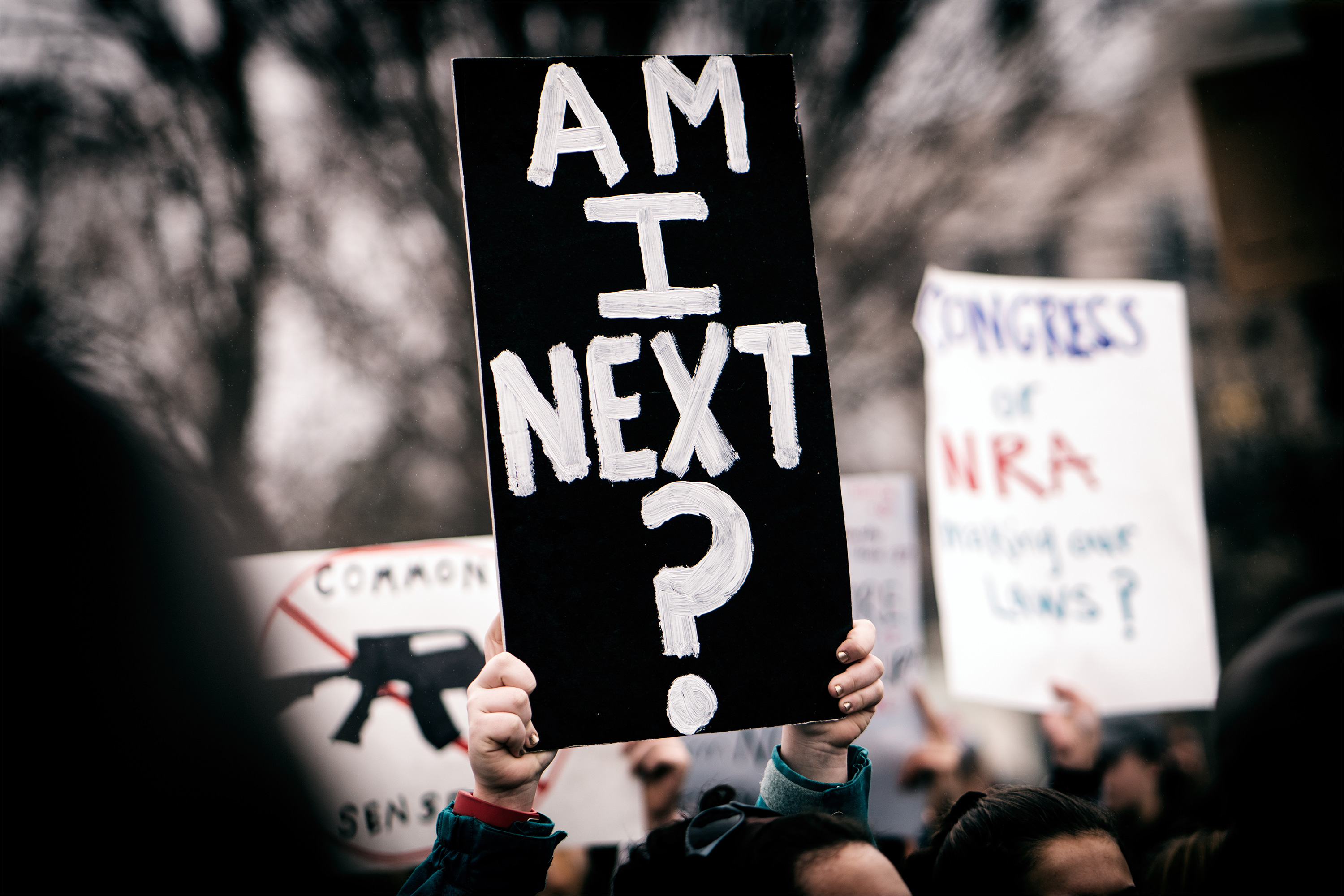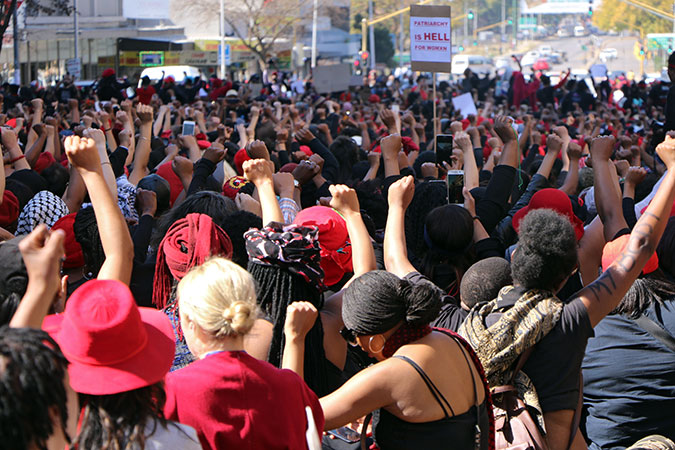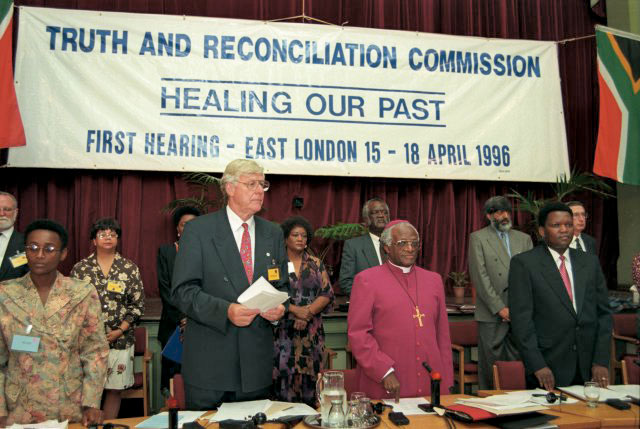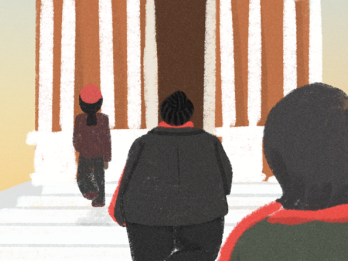
“Until we find each other, we are alone.” - Adrienne Rich
Reflecting on the value of women's solidarity, the 2023 webzine Kyeol prepared a special feature to explore the current state of violence against women around the world. Despite the abolition of apartheid in South Africa, remnants of colonialism and racism have led to high rates of female homicide. In Japan, runaway teenagers driven to the streets to escape domestic violence are becoming victims of sexual exploitation and prostitution industry.
This reality reminds us of the continuum theory proposed by Cynthia Cockburn, in which the political, economic, and social structures and norms of society act as the root cause of sexual violence that penetrates wartime and normal times. Let’s meet the story of women who say “War? Don’t speak to me of war. My daily life is battlefield enough” and are still struggling today.
“Rape and Gender Violence are part of TRC’s Unfinished Business”: South Africa’s Ongoing Quest for Gender Justice Part 2
Helen Scanlon, University of Cape Town, South Africa
Ephemeral Activism

In August 2019, 19-year-old University of Cape Town student Uyinene Mrwetyana was raped and killed by a post office employee in Cape Town. The first-year film and media student Uyinene (loosely translated meaning God/He is truth) had gone to fetch a parcel at the post office where she was brutally attacked and murdered. As Kopano Ratele has noted, “In a country that daily experiences gruesome attacks on women by men, Uyi’s murder captured the headlines in a way only a few incidents of violence had done before.”[1] In response, thousands of women took to the streets and the campaign #Am I Next was launched. But as was observed in the New Yorker, Uyinene’s case was another reminder that a “particularly shattering story makes the front page, and the country learns the name of another woman. Sometimes there are protests and sometimes there are not. Sometimes there are arguments about whose names are remembered and why. … Vigils are held, national days of mourning are declared.”[2] And then another shattering story of another woman’s rape and murder takes the headlines.
The protests prompted by the death of Uyinene were almost exactly a year after the 2018 #TotalShutDown movement, which saw mass action by thousands of women and gender non-conforming persons as well as organizations such as Gender DynamiX and the Saartjie Baartman Centre for Women and Children. Protesters marched to commemorate femicide victims, including Karabo Mokoena, who was murdered and burnt by her boyfriend in 2017, and 21-year-old student, Zolile Khumalo murdered in May 2018. The movement’s slogan was “Enough Violence, Enough Campaigning, Enough Lip-service!” and protesters demanded government action against the high level of gender-based violence.[3] Marches in Cape Town culminated in the delivery of 24 demands to Parliament. Gaopalelwe Phalaetsile, from the #TotalShutDown National Committee, noted “The 24 demands in our memorandum signify 24 years of democracy in which women and gender non-conforming people have been ignored.”[4] The choice to use the month of August to launch the protests was strategic. August is popularly known as Women’s Month in South Africa due to the historic march of 20,000 women in 1956 to protest against the introduction of passes for African women. At the time, women famously employed the refrain “When you strike the women, you strike a rock, you will be crushed!” which has since come to represent women’s courage and strength in the face of oppression in South Africa.

Historically South Africa has seen numerous vibrant and active movements advocating for women's rights, the most well-known being the Women’s National Coalition. The Coalition brought together more than seventy organizations in 1991 to advocate for women’s inclusion and representation in the negotiated peace agreement. Despite enormous class, race, and ideological differences in the aims of the organizations involved, the movement nonetheless devised a Women’s Charter for Effective Equality that ultimately influenced the gender-sensitive constitution of 1996. Activism since South Africa’s transition has taken various forms, including the creation of a number of non-governmental organizations such as Sonke Gender Justice and People Opposing Women Abuse (POWA). More recently, numerous social media campaigns such as #MenAreTrash, #TotalShutDown, #WomenForChange, and #EndRapeCulture have been the foci for activism around gender-based violence. However, this “sporadic issue-driven action” has been criticized for failing to ensure the pressure is sustained on the government for action.[5] More importantly, and in a similar vein to the anti-apartheid struggle, the hard work of activism and change seems to be expected from those most affected by violence instead of the perpetrators and enablers of that violence.
South Africa’s Transitional Justice Moment
The development of both transitional justice practice and theory has in many ways been defined by the South African experience. The nation’s foray into alternative measures to confront its history of violence and transition to a more peaceful and just society was seen as exemplary at the time. Choosing to eschew “victor’s justice” South Africa’s nation-building process was primarily navigated through the TRC that emerged in 1995 as a result of the negotiated settlement achieved through the Convention for a Democratic South Africa (CODESA). The Act creating the TRC outlined the Commission’s objective as being to facilitate the promotion of “national unity in a spirit of understanding which transcends the conflicts and divisions of the past.” As the Commission Sheila Meintjes and Beth Goldblatt prophetically observed, how the Commission addressed issues of gender-based violence would “play an extremely significant role in shaping South Africa's collective understanding of our painful past.”[6]

In some regards, the South African TRC was seen to have successfully included women. Women were well represented in its staff, constituted more than half of those who testified, and three separate hearings that focused exclusively on women were held. However, many gender activists criticized the TRC both for the fact that women tended to speak of others’ experiences rather than their own (of the 21,000 statements, 446 statements were coded as sexual abuse, and rape was explicitly mentioned in only 140 cases[7]), and more specifically for overlooking the structural impact of apartheid on women’s lives. The TRC was also critiqued for categorizing rape as ‘severe ill-treatment’ instead of recognizing it as a form of torture and persecution as it is currently recognized in international law. Thus, despite one chapter being dedicated to women in the final TRC report, the gendered nature of the country’s past was only superficially recorded.
This was despite the fact that a submission by the Centre for Applied Legal Studies to the Commission listed not only the widespread evidence of sexual assaults and torture that should be investigated but also the day-to-day violence experienced by women. As Andrea Durbach observed: “When a primary process seeking to chart the map for South Africa’s transition omits to include a critical site for recognition and redress, such as sexual violence against women, development, transformation, and reparation have little prospect of impacting on the restoration of the dignity of individuals who suffered harm or of contributing to a reduction and prevention of the violence.”[8]
While the South African TRC’s achievements include providing a platform for victims of gross human rights violations to be heard, it is important to also reflect on whether its failure to investigate the structural impact of apartheid has in some ways allowed acceptance of the ongoing violence in the country and, in particular, gender-based violence. As Sheila Meintjes and others contend, South Africa is a society living in an aftermath where “the political violence against women committed in the past has direct and indirect links to current levels of violence.” Durbach has similarly contended that “the execution of violence endemic to the apartheid system and the impunity that accompanied its manifestation are two recurrent explanations for the high levels of sexual violence against women post-apartheid.”[9] For the Khulumani Galela Campaign, “sexual violence and, the gender violence that is happening is part of the unfinished business … we still don’t have our freedom”.[10]
Conclusion
So, for how long can South Africa continue to be one of the most unsafe places in the world to be a woman? Clearly, liberal democratic initiatives such as the enshrinement of women's rights will continue to fail until structural inequalities, as well as the social norms that allow gender-based violence, are confronted. Observers such as Amanda Gouws have called for a more active women’s movement, as well as committed “feminist women in state structures.”[11] The example of the Women’s National Coalition that spearheaded feminist equality during the democratic transition in the 1990s has often been cited as something to replicate. But its strength of mobilizing women to ensure their voices were heard during the transition also proved to be its weakness. The disintegration of its rank and file came soon after the April 1994 election. Phinah Kodisang has been more inclusive in her analysis of who needs to be mobilized to address this scourge. In response to the NSP-GBVF, she argues: “All South Africans have a duty to remove violence and rape from the status quo. In order to do this, we require the collective will to end rape and femicide, as well as the structural and institutional support needed.”[12]
Thenjiwe Mtintso’s words to South Africa’s TRC thus remain as relevant now as they were in 1997: “Gender inequality and gender injustice is a violation of human rights. … we must realize that our present and future remain in jeopardy… if the violence against women and children is allowed to continue. South African society needs to be mobilized in the same manner that it was mobilized against apartheid. Because it is happening now. It is not happening in the days of apartheid; it is happening now”.[13]
Footnotes
- ^ Kopano Ratele, Why Men Hurt Women and Other Reflections on Love, Violence and Masculinity (Wits University Press, 2022), p.95.
- ^ Rosa Lyster, “The Death of Uyinene Mrwetyana and the Rise of South Africa’s “Am I Next?” Movement,” 12 September 2019 Available at https://www.newyorker.com/news/news-desk/the-death-of-uyinene-mrwetyana-and-the-rise-of-south-africas-aminext-movement
- ^ UN Women, “In South Africa, women call for #TotalShutdown of gender-based violence”, 3 August 2018, Available at https://www.unwomen.org/en/news/stories/2018/8/news-in-south-africa-women-call-for-totalshutdown-of-gender-based-violence
- ^ UN Women, “In South Africa, women call for #TotalShutdown of gender-based violence”, 3 August 2018, Available at https://www.unwomen.org/en/news/stories/2018/8/news-in-south-africa-women-call-for-totalshutdown-of-gender-based-violence
- ^ Amanda Gouws, “Violence against women is staggeringly high in South Africa – a different way of thinking about it is needed” The Conversation, 29 November 2022.
- ^ Beth Goldblatt and Sheila Meintjes, (1996). “Gender and the Truth and Reconciliation Commission,” Submission to the TRC Available at https://www.justice.gov.za/trc/hrvtrans/submit/gender.htm
- ^ Truth and Reconciliation Commission of South Africa. “Truth and Reconciliation Commission of South Africa Report,” Vol 4 (1998), p.298.
- ^ Andrea Durbach, “Towards Reparative Transformation: Revisiting the Impact of Violence against Women in a Post-TRC South Africa” International Journal of Transitional Justice 10, 3(2016), p.384.
- ^ Andrea Durbach, “Towards Reparative Transformation: Revisiting the Impact of Violence against Women in a Post-TRC South Africa” International Journal of Transitional Justice 10, 3(2016), p.385.
- ^ Nomarussia Bonase, interview, June 2022.
- ^ Amanda Gouws, “Violence against women is staggeringly high in South Africa – a different way of thinking about it is needed” The Conversation, 29 November 2022.
- ^ Phinah Kodisang, “Tackling gender-based violence and femicide requires collective effort” Mail and Guardian, 8 October 2022 Available at https://mg.co.za/thoughtleader/opinion/2022-10-08-tackling-gender-based-violence-and-femicide-requires-collective-effort/
- ^ Thenjiwe Mtintso, Truth and Reconciliation Commission of South Africa. “Truth and Reconciliation Commission of South Africa Report,” Vol 5 (1998), p.419.
Related contents
-

- “Rape and Gender Violence are part of TRC’s Unfinished Business”: South Africa’s Ongoing Quest for Gender Justice (1)
-
Colonialism and apartheid were both predicated on the marginalization and subjugation of the population in terms of race, gender, class, sexual orientation, and culture.
- Writer Helen Scanlon
-
Professor Helen Scanlon is the convenor of the Justice and Transformation Programme at the University of Cape Town (UCT), South Africa. She works as both a practitioner and academic on transitional justice and has published widely on the topics of transitional justice, gender, and peacebuilding. Her most recent work includes Gender, Transitional Justice and Memorial Arts: Global Perspectives on Commemoration and Mobilization (London: Routledge, 2021) co-edited with Jelke Boesten.